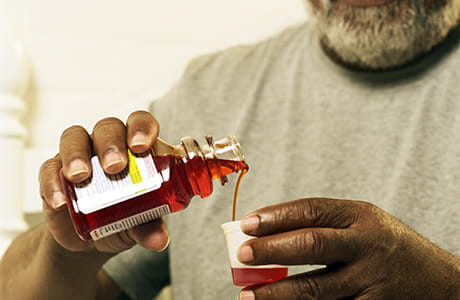What is commotio cordis?
This rare heart condition, caused by blunt force to the chest, happens only under very specific conditions.
Most cardiac conditions have warning signs. Sudden cardiac arrest, for example, can cause dizziness, fatigue and shortness of breath before the event.
A heart attack, which happens when there isn’t enough blood flow to the heart, can cause profuse sweating and arm, back and chest pain.
Commotio cordis doesn’t have warning signs and can happen to anyone — even if their ticker is in tiptop shape. But this rare condition only happens when very specific circumstances align — when blunt force to the chest impacts the heart mid-beat, causing an arrhythmia or irregular heartbeat.
It can be fatal unless interventions like CPR and use of an automatic external defibrillator (AED) are available. It’s most often reported in youth sports players.
“Commotio cordis is extremely rare but it does happen, both on the sports field as well as in everyday life,” says Martin Matsumura, MD, cardiologist at Geisinger.
Causes of commotio cordis
Your heart, like all muscles in the human body, is controlled by electrical impulses from your nerve cells. This helps your heart pump oxygenated blood to the rest of your body 24/7, keeping you alive.
If your heart is hit in a specific spot — in this case, the center of the left ventricle — it could cause commotio cordis.
“If all the conditions are right electrically, in terms of the nature of the contact, the depth, force, it can suddenly lead to formation of an abnormal heart rhythm that’s potentially life-threatening,” says Dr. Matsumura.
The force disrupts the rhythm of your heartbeat, causing ventricular fibrillation, a type of arrhythmia that hinders blood flow to the rest of the body.
It’s most often reported in youth sports like baseball, lacrosse, softball or hockey, in which objects like balls or a puck achieve high velocity.
But it bears repeating — this condition is extremely rare.
“The vast majority of chest contacts don’t lead to this,” says Dr. Matsumura.
If someone has this condition, they may lose consciousness and stop breathing due to the interruption to blood flow.
“The quicker you respond to this condition, or any cardiac event, the better the chances for a good outcome,” says Dr. Matsumura.
Treatment for commotio cordis
Rapid recognition of and response to commotio cordis are key. If you see someone lose consciousness after taking a hit to the chest, act quickly.
“A few minutes can make the difference between a good outcome and a bad one,” says Dr. Matsumura.
Here are some things to remember:
- Know the signs of a cardiac event. If you see someone complain of chest pain or lose consciousness, call for help immediately.
- Call 911 to get medical personnel on the scene as quickly as possible.
- CPR is especially important in sudden cardiac events of any kind. Knowing how to perform CPR can save a life.
- Know how to use an AED and be able to locate one in public places.
Dr. Matsumura recommends parents whose children participate in youth sports talk to the organizations about what resources are in place to keep kids safe on the field.
“Parents should be very proactive in having the right equipment and expertise available to their children,” says Dr. Matsumura.
Next steps:
Get care now
6 heart symptoms you shouldn't ignore
Play sports? Here's what to know about concussions





